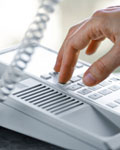Manhattan Area Dentists


9 East 62nd Street Suite 1F
New York, NY 10021



New York area restorative dentistry at Unique Dental Care can produce natural-looking results. If you have a damaged or missing tooth, we can help.
Our highly skilled team will assess your need for a crown, bridge, implant or other procedure to restore or improve your smile. Our goal is to provide quality dental care for your life-long oral health.
A beautiful smile can brighten your life! If you are continuously hiding your chipped, stained, or cracked teeth from others, it's time for a change! Alan Gold, D.D.S., a trusted New York area dentist, can fix chips, cracks, and stains to reveal a great new smile - and a new you. You'll look so good you'll wonder why you waited so long!
A negative self image can be detrimental to many facets of your life. New York area dentist Dr. Alan Gold understands the positive life-changing power that a healthy and beautiful smile can bring to you. Here at Unique Dental Care, we don't want you to be embarrassed any longer. Why not take your smile - and even your life - to a new level of self-confidence and beauty?
Don't let untreated dental problems get you down. Rebuild your confidence with a beautiful new smile. From simple treatments that make a big difference, to more extensive work, unveiling the smile you were meant to have can have profound life-changing effects. Serving the New York, NY area and offering general dentistry, Dr. Gold can help you develop an affordable treatment plan you'll feel good about.
New York area cosmetic dentist Alan Gold, D.D.S. has extensive experience creating beautiful smiles. They're one of the first things people notice about you.
Our professional team will be happy to discuss your aesthetic dentistry options. The attractive results you'll get from Unique Dental Care can change your life!
Zeiss
One Zeiss Drive
Thornwood, NY, 10594
(800) 442-4020
Ivoclar Vivadent, Inc.
175 Pineview Dr.
Amherst, NY, 14228
(716) 691-0010
Robin Grasso RDH , Profession
PO Box 300
Bedford, NY, 10506-0300
(914) 234-6332
Martin Zone ,D.D.S. DMD P.C
P. O. Box 548 2288 Route 63
Wayland , NY, 14572-0548